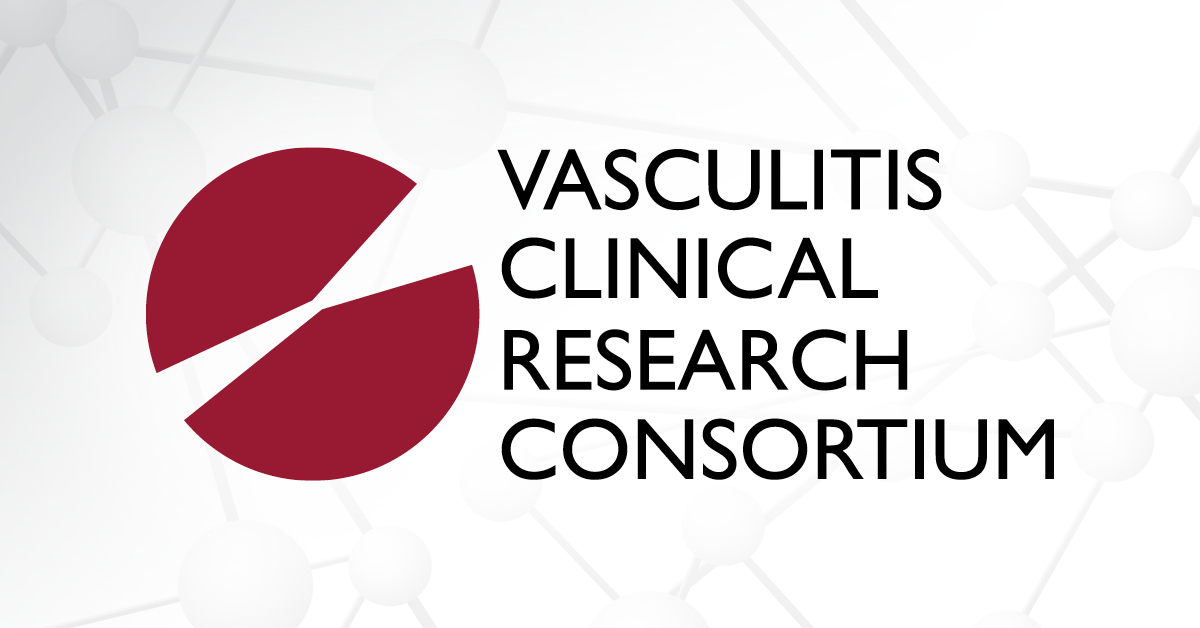The Vasculitis Clinical Research Consortium (VCRC) is an international, multi-center, clinical research infrastructure for the study of vasculitis. The VCRC was one of the founding Consortia within the NIH Rare Diseases Clinical Research Network (RDCRN) and was granted funding for a second 5-year period from the NIH through the Office of Rare Diseases Research (ORDR) and the National Institute of Arthritis and Musculoskeletal and Skin Diseases (NIAMS) in 2009.
Six types of vasculitis are under study within the VCRC:
- Churg-Strass syndrome
- Giant cell arteritis
- Granulomatosis with polyangiitis (Wegener's)
- Microscopic polyangiitis
- Polyarteritis nodosa
- Takayasu's arteritis
There are 12 primary VCRC clinical sites in the United States and Canada, and many additional international collaborating centers. The VCRC continues to steadily add new research centers.
The primary VCRC Clinical Centers in North America include Boston University, Cedars-Sinai Medical Center, the Cleveland Clinic, the Hospital for Special Surgery, Johns Hopkins University, the Mayo Clinic, the University of Toronto, McMaster University, the University of California at San Francisco, the University of North Carolina at Chapel Hill, the University of Pittsburgh, and the University of Utah. The University of Pennsylvania will be joining the Consortium in 2012. The VCRC works closely with the RDCRN Data Management and Coordinating Center at the University of South Florida to implement all Consortium protocols.
The VCRC receives its core funding from the National Institute of Arthritis and Musculoskeletal and Skin Diseases (NIAMS) and the Office of Rare Diseases Research (ORDR). Additional funding and support for specific studies has been obtained from the NIAMS, the National Center for Research Resources (NCRR), the National Institute of Neurologic Disorders and Stroke (NINDS), the US Food and Drug Administration (FDA), the Vasculitis Foundation, the American College of Rheumatology, the Arthritis Foundation, and biopharmaceutical industry partners.
VCRC Research Studies
The first VCRC research study was launched in April 2006 and since then 1,634 subjects have enrolled in a VCRC protocol. The VCRC is conducting longitudinal cohort studies focusing on six different types of vasculitis for studies of novel biomarkers, clinical epidemiology, outcome measure development, and genomics. The Consortium is conducting randomized clinical trials of new therapies for granulomatosis with polyangiitis (Wegener's), microscopic polyangiitis, giant cell (temporal) arteritis, and Takayasu's arteritis.
The VCRC Biomarker Discovery Program is collaborating with 15 research laboratories in North America, Europe, and Asia to conduct studies.
Overall, the VCRC has 13 research protocols, several of which create the basis for multiple additional specific research projects. To date, more than 50 publications have arisen from work within the VCRC.
VCRC Contact Registry
The VCRC Contact Registry is a method by which patients with 11 different types of vasculitis can register themselves online with the VCRC. More than 3,000 people have enrolled in the VCRC Contact Registry. VCRC investigators are conducting research studies utilizing the VCRC Contact Registry in which registrants are recruited for research studies and complete research procedures completely through online procedures.
VCRC Vasculitis Training Program
The VCRC Fellowship is a structured two-year mentored training program for physician-investigators who have developed an interest in vasculitis and wish to pursue a period of specialized training with an emphasis on translational and patient-oriented clinical investigation. The trainee undertakes the fellowship at one of the VCRC study sites. Fellows who have developed an interest in vasculitis are recruited from Rheumatology, Nephrology, Pulmonology, Neurology, Vascular Medicine/Cardiology, or other subspecialties. Five fellows have successfully completed the VCRC Fellowship training program and each of these fellows remains in academic medicine conducting research in vasculitis. Two fellows are currently in their second year of the program.
VCRC Partnership with Patient Advocacy Groups
The VCRC and several vasculitis patient advocacy groups, specifically the Vasculitis Foundation, the Churg Strauss Syndrome Association, and the Polyarteritis Nodosa (PAN) Support Network, have excellent working relationships that are an essential component to the ongoing growth and success of the VCRC.
Summary
The VCRC has become the major clinical research infrastructure for the study of vasculitis in North America. The productivity and growth of the VCRC is another strong example of the success of the RDCRN to advance collaborative, efficient, and novel research in rare diseases.
Peter A. Merkel, MD, MPH


